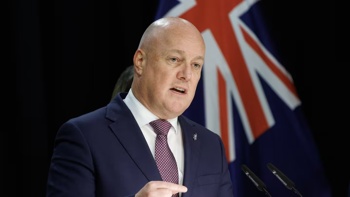
An obstetrician failed to carry out recommended checks and fully advise a pregnant woman whose baby later died after 11 days, an investigation has found.
The baby died at Palmerston North Hospital after being diagnosed with a severe brain injury.
In a decision released today, the Health and Disability Commission (HDC) criticised the consultant obstetrician and the MidCentral District Health Board’s care of the pregnant mother and her infant.
Deputy Commissioner Rose Wall made a series of recommendations, including a written apology from the doctor to the patient and a request that the Medical Council consider whether a review of the doctor’s competence was warranted.
The mother, known as Mrs A, was hospitalised while 32 weeks’ pregnant after concerns about reduced fetal movements.
She was found to have high blood pressure and other symptoms which led to a diagnosis of pre-eclampsia, a serious condition which can affect the mother and baby - possibly by increasing the risk of poor fetal growth, premature birth or stillbirth.
While the mother had regular fetal heart checks at the hospital, the HDC investigation found that the obstetrician did not carry out a fetal growth assessment after the pre-eclampsia diagnosis - despite this being the accepted standard of care.
The mother, who had a Caesarean section for her first baby, told the doctor - known as Dr B - that she would prefer a vaginal birth. She was told by the doctor that this would require induction and was warned of some of the risks.
Dr B then cancelled a scheduled ultrasound to assess fetal growth, and there was no evidence that she discussed this decision with the patient. The doctor told the commission that an ultrasound was unnecessary because one had been performed three weeks earlier and had shown normal growth and health. She said her approach and fetal monitoring was backed by the DHB’s guidelines.
However, Wall found that the decision not to carry out additional checks after the pre-eclampsia diagnosis went against Ministry of Health guidelines.
After Mrs A was induced at 34 weeks, monitoring showed irregularities in the baby’s heartbeat. Induction was stopped and Mrs A underwent an emergency Caesarean section.
The baby died 11 days later, and “severe placental compromise” indicated that one or more in-utero events had led to their death.
In an opinion provided to the commission, obstetrician and gynaecologist Dr John Short said he could not categorically state that alternative management would have led to a different outcome because it was not known when the in-utero brain injury occurred and “when the fetal compromise became irreversible”.
But Dr Short was critical of the monitoring of the baby after the mother’s pre-eclampsia was diagnosed; the “somewhat misguided” decision to induce labour; and the failure to realise that the diagnosis of pre-eclampsia meant a significant increase in the risk of the pregnancy.
Wall concluded in her report: “Given that no fetal growth assessment was completed at the time the pre-eclampsia was diagnosed and, as there appears to be a general lack of information given to the woman about the risks of induction and labour for the baby (in the context of her recent history of [fetal heart rate] abnormalities), I consider the doctor did not provide services with reasonable care and skill.”
She criticised the doctor’s communication with the mother, saying she did not adequately explain why her ultrasound was cancelled and did not receive sufficient information about the potential risks of induction and labour to her baby.
MidCentral DHB was also criticised for some its communication with the mother, and for its guidelines for fetal monitoring - which were out of step with national guidelines.
Wall acknowledged that the ministry had only updated its guidelines three months before the incident, which was a mitigating factor. But during her investigation, she found the DHB had still not updated its guidance after three years. At the recommendation of the commission, Te Whatu Ora has now updated the guidelines to align with the ministry.
Wall recommended that Te Whatu Ora use the case as a case study to encourage reflection and discussion during obstetric and maternity education sessions.
She recommended that the obstetrician provide a written apology to the patient and that the Medical Council consider reviewing her competence.
The doctor was now carrying out the recommended checks of patients with pre-eclampsia, the report said.
The doctor apologised after learning that the baby had died.
“I reiterate how very sorry I am for the loss of [Baby A] and for [Mrs A’s] experience while under my care.”
She accepted that an earlier growth ultrasound and a blood flow test might have given information that changed Mrs A’s care, but she did not think those investigations would have prevented the baby’s death.
Take your Radio, Podcasts and Music with you









